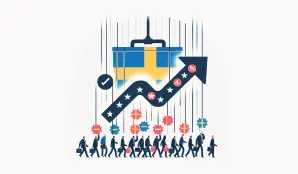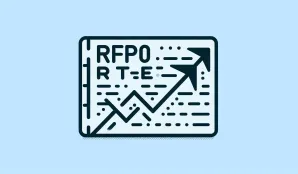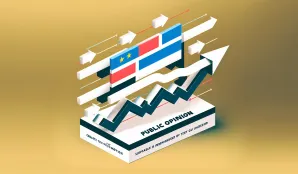Inflation
- Articles
- Inflation
Inflation continues to decrease - KPIF now at 1.1% in September
The latest inflation report from Statistics Sweden (SCB) shows that the Consumer Price Index with a fixed interest rate (KPIF) has dropped to 1.1% in September 2024. This marks a further decline from August's 1.2% and is a significant decrease compared to the peak of 10.2% in December 2022. This development could have major consequences for Swedish households and the economy as a whole.
The Riksbank's decision and economic forecasts
With a steady decline in inflation and the current repo rate at 3.5%, the Riksbank faces a crucial decision. The decreasing inflation may provide room for a rate cut, which could ease the financial burden on households. Historically, the Riksbank has lowered the interest rate in similar situations to stimulate the economy.
Economic experts are now speculating that we can expect a rate cut in the coming months, especially if this trend continues. A reduction in the repo rate could lead to lower mortgage rates, which is good news for borrowers.
Mortgage Calculation: How will your mortgage be affected?
With the current repo rate at 3.5% and a bank markup of 1%, we can make the following assumptions for mortgage rates:
- Mortgage of 1 million SEK: Rate 4.5% - Annual cost: 45,000 SEK
- Mortgage of 3 million SEK: Rate 4.5% - Annual cost: 135,000 SEK
- Mortgage of 5 million SEK: Rate 4.5% - Annual cost: 225,000 SEK
If the Riksbank decides to cut the repo rate by 0.25%, these costs could decrease by approximately 2,500 SEK, 7,500 SEK, and 12,500 SEK per year for the different loan amounts.
Personal Loans and other expenses
For personal loans, we can also expect some relief if interest rates are lowered. This could mean lower monthly costs for consumers with existing loans. At the same time, it may become more attractive to take out new loans for investments or consumption.
Food prices, fuel prices, and energy prices
The decreasing inflation can also affect prices of food, fuel, and energy. With lower inflationary pressures, we can expect a stabilization or even a decrease in these costs, which would benefit household purchasing power.
However, it is important to note that external factors, such as global energy prices and weather conditions, also play a significant role in these sectors. Therefore, it is difficult to predict exactly how these prices will evolve.
Summary
The latest inflation report shows a continued decline in inflation, which could lead to lower interest rates and thus a relief for Swedish households. The Riksbank's upcoming decision will be crucial for the future economic development. With a possible rate cut, we can expect positive effects on both mortgages and other loan costs, while food and energy prices may stabilize.
Sweden's national debt
-

Opinion Landscape: Novus February 2026 – Social Democrats Still Largest
Thu, 19 Feb 2026 - 01:35 -

Policy rate remains at 1.75% – Riksbank signals stability
Thu, 29 Jan 2026 - 14:02











